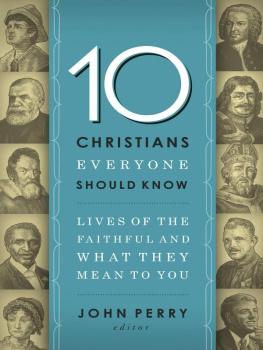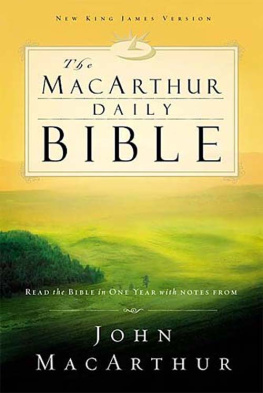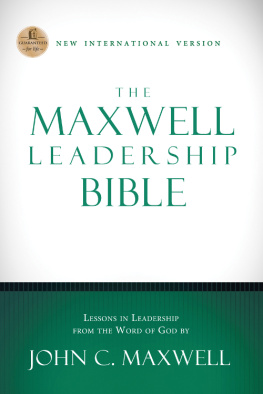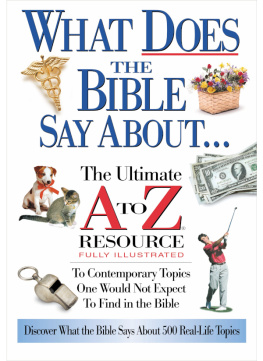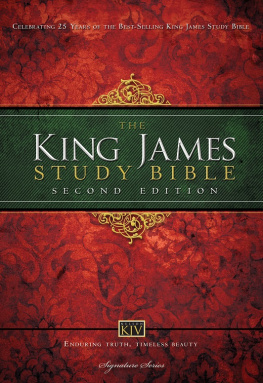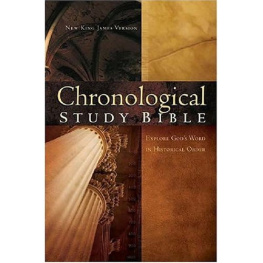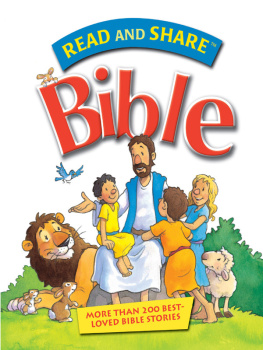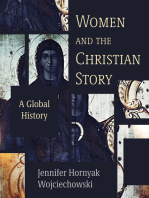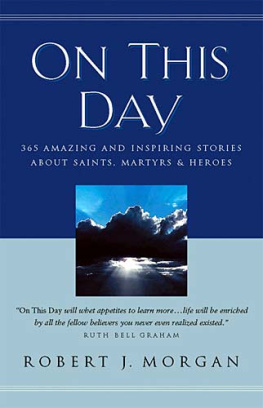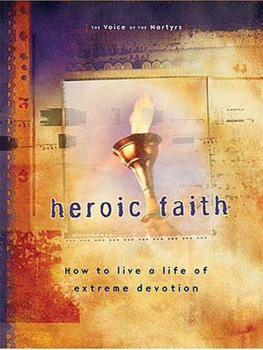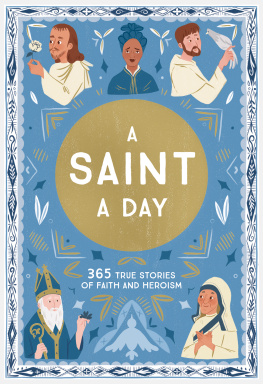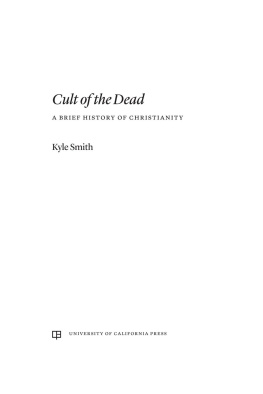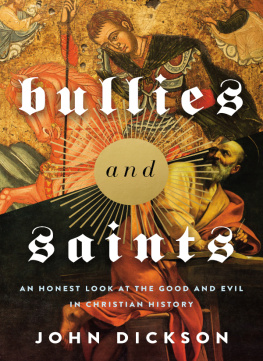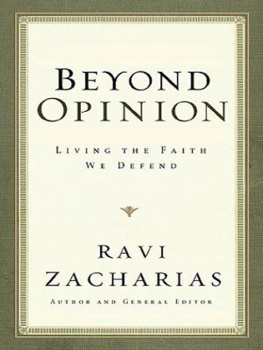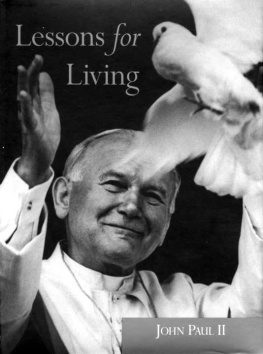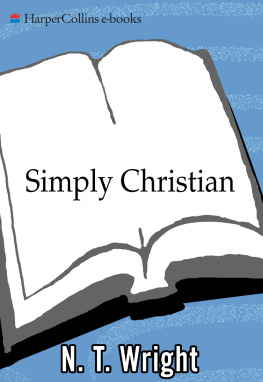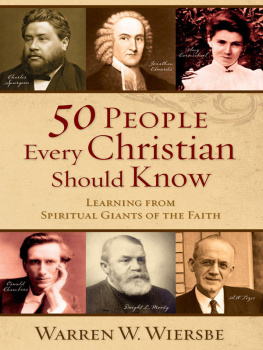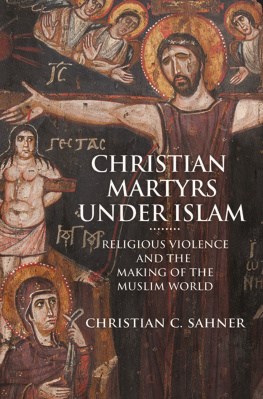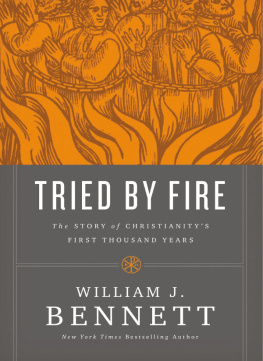
CHRISTIANS
EVERYONE
SHOULD KNOW

Lives of the Faithful and What
They Mean to You
JOHN PERRY
editor

2012 by Thomas Nelson, Inc.
All rights reserved. No portion of this book may be reproduced, stored in a retrieval system, or transmitted in any form or by any meanselectronic, mechanical, photocopy, recording, scanning, or otherexcept for brief quotations in critical reviews or articles, without the prior written permission of the publisher.
Published in Nashville, Tennessee, by Thomas Nelson. Thomas Nelson is a registered trademark of Thomas Nelson, Inc.
Abridged from Saint Patrick, 2010 by Jonathan Rogers; Galileo, 2011 by Mitch Stokes; Anne Bradstreet, 2010 by Master Sales, Inc.; John Bunyan, 2010 by Kevin Belmonte; Johann Sebastian Bach, 2011 by Rick Marschall; Jane Austen, 2009 by Peter Leithart; D. L. Moody, 2010 by Kevin Belmonte; George Washington Carver, 2011 by John Perry; Sergeant York, 2010 by John Perry; William F. Buckley Jr., 2010 by Jeremy Lott.
Thomas Nelson, Inc., titles may be purchased in bulk for educational, business, fund-raising, or sales promotional use. For information, please e-mail SpecialMarkets@ThomasNelson.com.
Library of Congress Cataloging-in-Publication Data
10 Christians everyone should know : lives of the faithful and what they mean to you / John Perry, editor.
p. cm.
Includes bibliographical references (p. ) and index.
ISBN 978-1-4002-0361-1
1. Christian biography. I. Perry, John, 1952- II. Title: Ten Christians everyone should know.
BR1700.3.A15 2012
270.0922--dc23
[B]
2012010092
Printed in the United States of America
12 13 14 15 16 QG 6 5 4 3 2 1
CONTENTS
T he impact of Christianity on Western culture has never depended on the quality of a twenty-minute Sunday sermon. Its tectonic, world-changing power flows instead from the words and deeds of those who believe in Christ and follow Him with all their hearts. God sent His Son to earth in human form to demonstrate how the godly must live. Through the lives of the faithful, the world sees the teaching and the promise of the Christ they serve. It is through them that Christianity makes its mark on the world.
Just as Christ was a humble man, a carpenter and not a king, many of historys most admirable and influential Christians have come from what the world considers a lowly station. Others were high-born, and many more lived and worked in the teeming, anonymous middle of humanity, blooming where they were planted. That being the case, we might encounter great Christian figures in any stratum of society, anywhere in the world, in any historical age. That brings us to the stories of the ten men and women in the book you now hold in your hands.
It would be almost impossible to imagine ten people more different from each other than these. There is the aristocrat and the orphan; the great man of learning and the wilderness housewife; the father of twenty and the lonesome spinster; a soldier, a shoe salesman, a millionaire publisher, and a maker of pots and pans. This variety gives us the first truth of Christian living: anybody, anywhere can be a champion of the faith, an example and inspiration to all who follow. Anne Bradstreet was a busy wife and mother with a houseful of children in the wilderness of colonial America. Yet her Christian poetry was so heartfelt and compelling, so universal in its appeal, that she became the first published poet in the New World and the first woman ever to be published in both England and America. Beginning his life as a slave and an orphan, George Washington Carver ended it as a beloved international celebrity who never tired of telling the world about his Creator and Gods love for every living thing.
Another lesson these figures remind us of is that being a Christian doesnt necessarily make life easier; in fact, it often makes it harder. Saint Patrick felt a calling to minister to the very people who had kidnapped him from a life of ease and plenty. Galileo and Bunyan were imprisoned for daring to express Christianity as they knew it rather than bow to demands of the religious hierarchy. To these believers, faith was more important than freedom, more important than the comfort and safety of their families, even more important than their lives. As Christ had sacrificed Himself for them, they were willing to give all they had in His service.
Christians living and working outside church walls show us, too, that some of the most effective sermons arent sermons at all. Bach was inspired by his faith to write music that has in turn inspired countless millions. D. L. Moody did some of his most powerful evangelizing not preaching in great churches packed to the rafters, but befriending ragged street children in a Chicago railyard. William F. Buckley never delivered a sermon, yet a Christian worldview informed his erudite, witty, and influential output in print and broadcasting for nearly half a century.
We see as well that Christianity is timeless. This is good news for those of us who fear for the future of the faith in this so-called post-Christian era. Saint Patrick was born in the fifth century AD. William Buckley died in 2008. As different as their worlds wereand as different from the worlds of Galileo or Austenthey nonetheless faced some of the same obstacles. Christianity goes against the most deeply ingrained tendencies of the human heart. We are by nature hopelessly self-centered. As Jeremiah 17:9 warns us, The heart is deceitful above all things, and desperately wicked. Scanning the headlines of todays newspaper or news website will bear this out. Chances are that every tragedy reported there is the result of someone taking what he doesnt have simply because he wants it. Robbery, rape, war, kidnapping, embezzlement, and all the rest come from the deceit and wickedness within.
Christianity, on the other hand, teaches us to be humble, selfless, and sacrificial in our lives. Humankind alone has no power to overcome our dark natural tendencies; only the divine power of God through Christ makes it possible. From the time of Christ to our own, the world has remained a treacherous and unwelcoming place. The obvious way to deal with it is to practice treachery in return. Christ, through His followers, teaches us that the better way is through kindness and compassion. It lightens our burden in this life and readies us for the unalloyed joy of the next.
Saint Patrick and Mr. Buckley, and everyone in between, had to deal with the same treacherous world populated by the same wicked hearts. And so in this fundamental way, Roman Britain and twenty-first-century New York City put up the same barriers to Christian living. And the same faith, courage, and willingness to sacrifice achieve the same God-given success in overcoming them.
One of the great gifts of history is that since the moment humankind appeared on earth, human nature hasnt really changed. This means that knowing the past gives us a window on understanding the future. Look at the decision a historical figure had to make, the choice that was made, and the results that followed. Anyone facing a similar decision today can learn from what happened then. Thus the more kinds of people we know of and the more we know about them, the better equipped we will be to make our own choices. Nine hundred years before Christ, King Solomon observed, There is nothing new under the sun (Ecclesiastes 1:9). These ten inspired and inspiring Christians, scattered across time and place, are proof of Solomons wisdom, faithful guides from the past helping us thread a pathway through the future.
Next page
